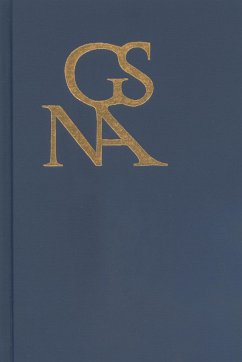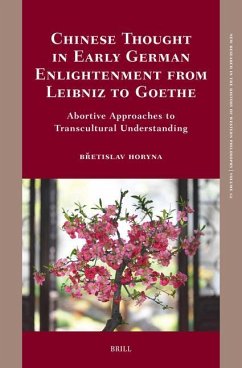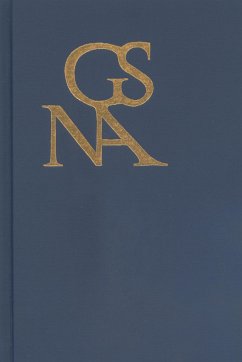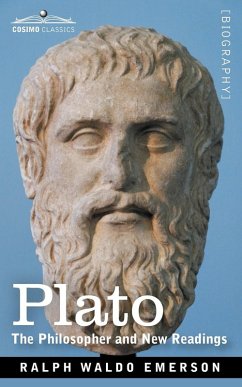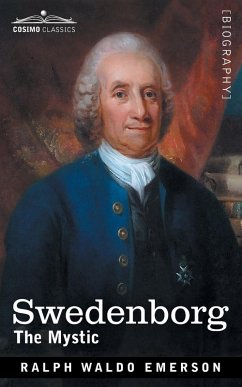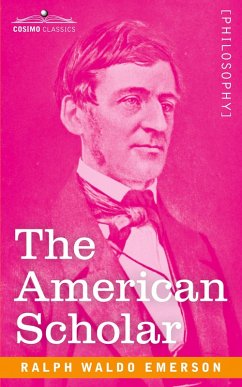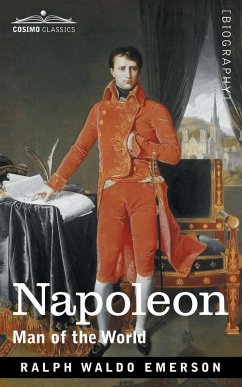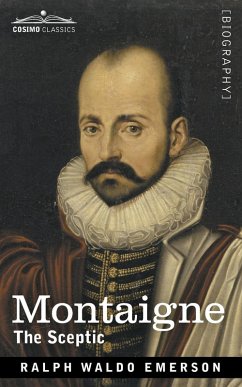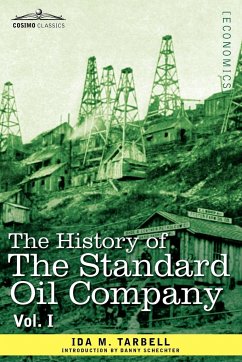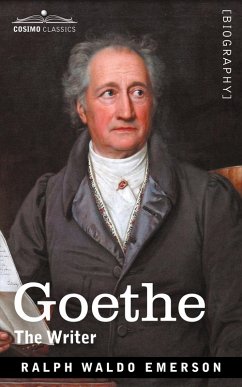
Goethe
The Writer
Versandkostenfrei!
Versandfertig in 1-2 Wochen
9,49 €
inkl. MwSt.

PAYBACK Punkte
5 °P sammeln!
"Society has really no graver interest than the well-being of the literary class." -Ralph Waldo Emerson, Goethe; or, the Writer Goethe, the Writer (1850) by Ralph Waldo Emerson is one of seven lectures Emerson gave on the thinkers who most influenced his work and whose biographies eventually became the content of a collection entitled Representative Men (also available from Cosimo Classics). Even though there are questions about how much of Goethe's writing Emerson actually read, Emerson considered Goethe near the top of the intellectual world, and his views on science and nature, as well as s...
"Society has really no graver interest than the well-being of the literary class." -Ralph Waldo Emerson, Goethe; or, the Writer Goethe, the Writer (1850) by Ralph Waldo Emerson is one of seven lectures Emerson gave on the thinkers who most influenced his work and whose biographies eventually became the content of a collection entitled Representative Men (also available from Cosimo Classics). Even though there are questions about how much of Goethe's writing Emerson actually read, Emerson considered Goethe near the top of the intellectual world, and his views on science and nature, as well as several aspects of his writing style, were derived largely from those of Goethe. Of this icon, Emerson wrote, "Goethe teaches courage."





